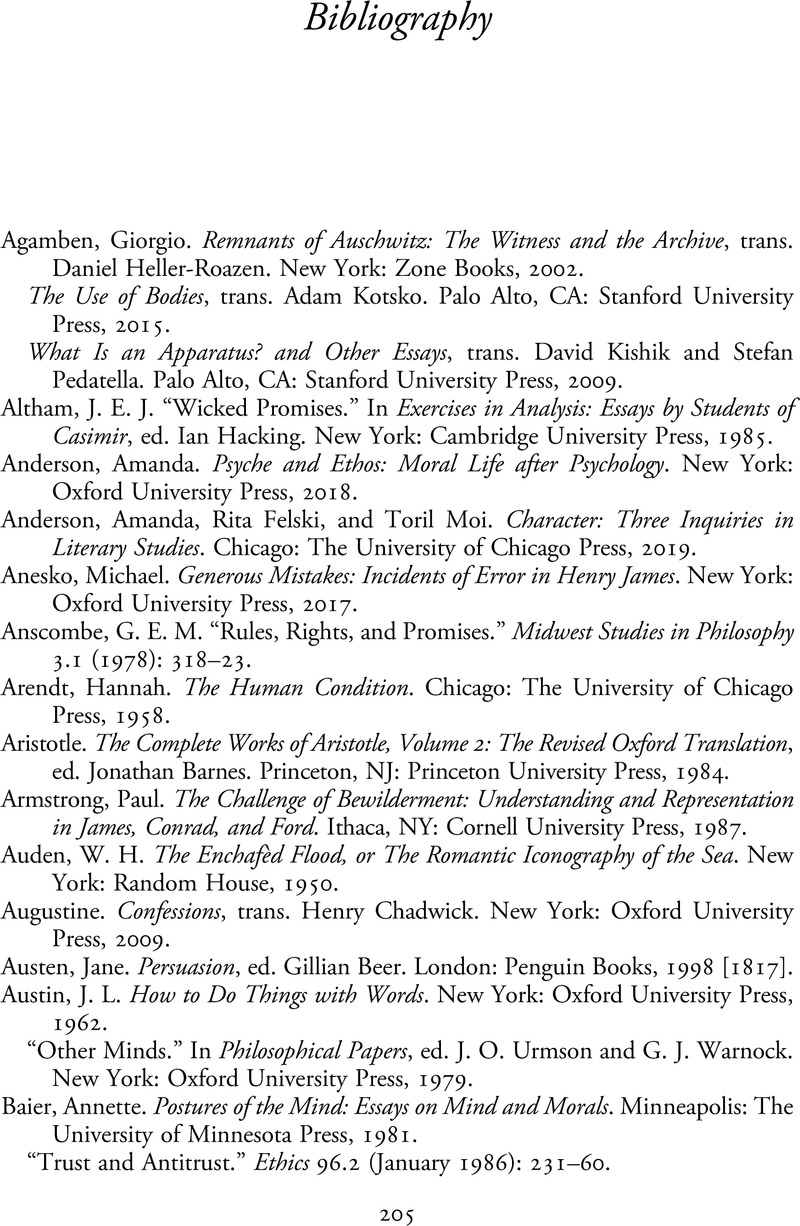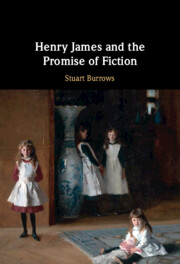Book contents
- Henry James and the Promise of Fiction
- Henry James and the Promise of Fiction
- Copyright page
- Epigraph
- Contents
- Acknowledgements
- Note on Text
- Introduction
- Chapter 1 Promising Others
- Chapter 2 Promising for Others
- Chapter 3 Promising Oneself
- Chapter 4 Promising to Love
- Chapter 5 Promising to Lie
- Chapter 6 Promising the Future
- Conclusion
- Notes
- Bibliography
- Index
- References
Bibliography
Published online by Cambridge University Press: 26 October 2023
- Henry James and the Promise of Fiction
- Henry James and the Promise of Fiction
- Copyright page
- Epigraph
- Contents
- Acknowledgements
- Note on Text
- Introduction
- Chapter 1 Promising Others
- Chapter 2 Promising for Others
- Chapter 3 Promising Oneself
- Chapter 4 Promising to Love
- Chapter 5 Promising to Lie
- Chapter 6 Promising the Future
- Conclusion
- Notes
- Bibliography
- Index
- References
Summary

- Type
- Chapter
- Information
- Henry James and the Promise of Fiction , pp. 205 - 217Publisher: Cambridge University PressPrint publication year: 2023

